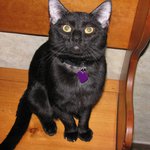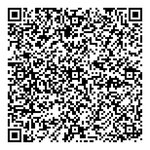MODSERIAL with support for more devices
Dependents: 1D-Pong BMT-K9_encoder BMT-K9-Regelaar programma_filter ... more
Check the cookbook page for more information: https://mbed.org/cookbook/MODSERIAL
Did you add a device? Please send a pull request so we can keep everything in one library instead of many copies. In that case also send a PM, since currently mbed does not inform of new pull requests. I will then also add you to the developers of this library so you can do other changes directly.
Revision 30:b04ce87dc424, committed 2013-09-01
- Comitter:
- Sissors
- Date:
- Sun Sep 01 12:24:12 2013 +0000
- Parent:
- 29:9a41078f0488
- Child:
- 31:b90b20f78f04
- Commit message:
- See changelog
Changed in this revision
--- a/ChangeLog.c Fri Jul 12 15:56:20 2013 +0000
+++ b/ChangeLog.c Sun Sep 01 12:24:12 2013 +0000
@@ -1,4 +1,8 @@
/* $Id:$
+1.30 1st September 2013
+ * Removed all DMA related code (not supported in this version currently)
+ * Minor bug fix
+
1.29 12th July 2013
* Added KL25Z support + split code in device dependent and independent part
--- a/FLUSH.cpp Fri Jul 12 15:56:20 2013 +0000
+++ b/FLUSH.cpp Sun Sep 01 12:24:12 2013 +0000
@@ -39,7 +39,7 @@
buffer_overflow[type] = 0;
switch(type) {
case TxIrq: RESET_TX_FIFO; break;
- case RxIrq: while(MODSERIAL_READABLE) char dummy = MODSERIAL_READ_REG; break;
+ case RxIrq: RESET_RX_FIFO; break;
}
MODSERIAL_IRQ_REG = irq_req;
}
--- a/INIT.cpp Fri Jul 12 15:56:20 2013 +0000
+++ b/INIT.cpp Sun Sep 01 12:24:12 2013 +0000
@@ -41,9 +41,7 @@
setBase();
callbackInfo.setSerial(this);
-
- dmaSendChannel = -1;
- moddma_p = (void *)NULL;
+
if ( _base != NULL ) {
buffer_size[RxIrq] = rxSize;
--- a/MODSERIAL.h Fri Jul 12 15:56:20 2013 +0000
+++ b/MODSERIAL.h Sun Sep 01 12:24:12 2013 +0000
@@ -937,127 +937,7 @@
*/
int upSizeBuffer(int size, IrqType type, bool memory_check);
- /*
- * If MODDMA is available the compile in code to handle sending
- * an arbitary char buffer. Note, the parts before teh #ifdef
- * are declared so that MODSERIAL can access then even if MODDMA
- * isn't avaiable. Since MODDMA.h is only available at this point
- * all DMA functionality must be declared inline in the class
- * definition.
- */
-public:
-
- int dmaSendChannel;
- void *moddma_p;
-#ifdef MODDMA_H
-
- MODDMA_Config *config;
-
- /**
- * Set the "void pointer" moddma_p to be a pointer to a
- * MODDMA controller class instance. Used to manage the
- * data transfer of DMA configurations.
- *
- * @ingroup API
- * @param p A pointer to "the" instance of MODDMA.
- */
- void MODDMA(MODDMA *p) { moddma_p = p; }
-
- /**
- * Send a char buffer to the Uarts TX system
- * using DMA. This blocks regular library
- * sending.
- *
- * @param buffer A char buffer of bytes to send.
- * @param len The length of the buffer to send.
- * @param dmaChannel The DMA channel to use, defaults to 7
- * @return MODDMA::Status MODDMA::ok if all went ok
- */
- int dmaSend(char *buffer, int len, int dmaChannel = 7)
- {
- if (moddma_p == (void *)NULL) return -2;
- class MODDMA *dma = (class MODDMA *)moddma_p;
-
- dmaSendChannel = dmaChannel & 0x7;
-
- uint32_t conn = MODDMA::UART0_Tx;
- switch(_serial.index) {
- case 0: conn = MODDMA::UART0_Tx; break;
- case 1: conn = MODDMA::UART1_Tx; break;
- case 2: conn = MODDMA::UART2_Tx; break;
- case 3: conn = MODDMA::UART3_Tx; break;
- }
-
- config = new MODDMA_Config;
- config
- ->channelNum ( (MODDMA::CHANNELS)(dmaSendChannel & 0x7) )
- ->srcMemAddr ( (uint32_t) buffer )
- ->transferSize ( len )
- ->transferType ( MODDMA::m2p )
- ->dstConn ( conn )
- ->attach_tc ( this, &MODSERIAL::dmaSendCallback )
- ->attach_err ( this, &MODSERIAL::dmaSendCallback )
- ; // config end
-
- // Setup the configuration.
- if (dma->Setup(config) == 0) {
- return -1;
- }
-
- //dma.Enable( MODDMA::Channel_0 );
- dma->Enable( config->channelNum() );
- return MODDMA::Ok;
- }
-
- /**
- * Attach a callback to the DMA completion.
- *
- * @ingroup API
- * @param fptr A function pointer to call
- * @return this
- */
- void attach_dmaSendComplete(void (*fptr)(MODSERIAL_IRQ_INFO *)) {
- _isrDmaSendComplete.attach(fptr);
- }
-
- /**
- * Attach a callback to the DMA completion.
- *
- * @ingroup API
- * @param tptr A template pointer to the calling object
- * @param mptr A method pointer within the object to call.
- * @return this
- */
- template<typename T>
- void attach_dmaSendComplete(T* tptr, void (T::*mptr)(MODSERIAL_IRQ_INFO *)) {
- if((mptr != NULL) && (tptr != NULL)) {
- _isrDmaSendComplete.attach(tptr, mptr);
- }
- }
-
- MODSERIAL_callback _isrDmaSendComplete;
-
-protected:
- /**
- * Callback for dmaSend().
- */
- void dmaSendCallback(void)
- {
- if (moddma_p == (void *)NULL) return;
- class MODDMA *dma = (class MODDMA *)moddma_p;
-
- MODDMA_Config *config = dma->getConfig();
- dma->haltAndWaitChannelComplete( (MODDMA::CHANNELS)config->channelNum());
- dma->Disable( (MODDMA::CHANNELS)config->channelNum() );
- if (dma->irqType() == MODDMA::TcIrq) dma->clearTcIrq();
- if (dma->irqType() == MODDMA::ErrIrq) dma->clearErrIrq();
- dmaSendChannel = -1;
- _isrDmaSendComplete.call(&this->callbackInfo);
- delete(config);
- }
-
-#endif // MODDMA_H
//DEVICE SPECIFIC FUNCTIONS:
--- a/PUTC.cpp Fri Jul 12 15:56:20 2013 +0000
+++ b/PUTC.cpp Sun Sep 01 12:24:12 2013 +0000
@@ -37,7 +37,7 @@
return 0;
}
- if ( MODSERIAL_WRITABLE && MODSERIAL_TX_BUFFER_EMPTY && dmaSendChannel == -1 ) {
+ if ( MODSERIAL_WRITABLE && MODSERIAL_TX_BUFFER_EMPTY ) {
MODSERIAL_WRITE_REG = (uint32_t)c;
}
else {
--- a/example_dma.cpp Fri Jul 12 15:56:20 2013 +0000
+++ /dev/null Thu Jan 01 00:00:00 1970 +0000
@@ -1,144 +0,0 @@
-#ifdef COMPILE_EXAMPLE_CODE_MODSERIAL_MODDMA
-
-/*
- * To run this test program, link p9 to p10 so the Serial loops
- * back and receives characters it sends.
- */
-
-#include "mbed.h"
-
-/* Note, this example requires that you also import into the Mbed
- compiler the MODDMA project as well as MODSERIAL
- http://mbed.org/users/AjK/libraries/MODDMA/latest
- MODDMA.h MUST come before MODSERIAL.h */
-#include "MODDMA.h" // <--- Declare first
-#include "MODSERIAL.h" // Flollowed by MODSERIAL
-
-DigitalOut led1(LED1);
-DigitalOut led2(LED2);
-DigitalOut led3(LED3);
-DigitalOut led4(LED4);
-
-MODSERIAL pc(USBTX, USBRX);
-
-/*
- * As experiement, you can define MODSERIAL as show here and see what
- * effects it has on the LEDs.
- *
- * MODSERIAL uart(TX_PIN, RX_PIN, 512);
- * With this, the 512 characters sent can straight into the buffer
- * vary quickly. This means LED1 is only on briefly as the TX buffer
- * fills.
- *
- * MODSERIAL uart(TX_PIN, RX_PIN, 32);
- * With this, the buffer is smaller than the default 256 bytes and
- * therefore LED1 stays on much longer while the system waits for
- * room in the TX buffer.
- */
-MODSERIAL uart(TX_PIN, RX_PIN);
-
-MODDMA dma;
-
-// This function is called when a character goes from the TX buffer
-// to the Uart THR FIFO register.
-void txCallback(void) {
- led2 = !led2;
-}
-
-// This function is called when TX buffer goes empty
-void txEmpty(void) {
- led2 = 0;
- pc.puts(" Done. ");
-}
-
-void dmaComplete(void) {
- led1 = 1;
-}
-
-// This function is called when a character goes into the RX buffer.
-void rxCallback(void) {
- led3 = !led3;
- pc.putc(uart.getc());
-}
-
-int main() {
- char s1[] = " *DMA* *DMA* *DMA* *DMA* *DMA* *DMA* *DMA* ";
- int c = 'A';
-
- // Tell MODSERIAL where the MODDMA controller is.
- pc.MODDMA( &dma );
-
- // Ensure the baud rate for the PC "USB" serial is much
- // higher than "uart" baud rate below.
- pc.baud( PC_BAUD );
-
- // Use a deliberatly slow baud to fill up the TX buffer
- uart.baud(1200);
-
- uart.attach( &txCallback, MODSERIAL::TxIrq );
- uart.attach( &rxCallback, MODSERIAL::RxIrq );
- uart.attach( &txEmpty, MODSERIAL::TxEmpty );
-
- // Loop sending characters. We send 512
- // which is twice the default TX/RX buffer size.
-
- led1 = 0;
-
- // Send the buffer s using DMA channel 7
- pc.attach_dmaSendComplete( &dmaComplete );
- pc.dmaSend( s1, sizeof(s1), MODDMA::Channel_7 );
-
- for (int loop = 0; loop < 512; loop++) {
- uart.printf("%c", c);
- c++;
- if (c > 'Z') c = 'A';
- }
-
- led1 = 0; // Show the end of sending by switching off LED1.
-
- // End program. Flash LED4. Notice how LED 2 and 3 continue
- // to flash for a short period while the interrupt system
- // continues to send the characters left in the TX buffer.
-
- while(1) {
- led4 = !led4;
- wait(0.25);
- }
-}
-
-/*
- * Notes. Here is the sort of output you can expect on your PC/Mac/Linux host
- * machine that is connected to the "pc" USB serial port.
- *
- * *DMA* *DMA* *DMA* *DMA* *DMA* *DMA* *DMA* ABCDEFGHIJKLMNOPQRSTUVWXYZABCDE
- * FGHIJKLMNOPQRSTUVWXYZABCDEFGHIJKLMNOPQRSTUVWXYZABCDEFGHIJKLMNOPQRSTUVWXYZA
- * BCDEFGHIJKLMNOPQRSTUVWXYZABCDEFGHIJKLMNOPQRSTUVWXYZABCDEFGHIJKLMNOPQRSTUVW
- * XYZABCDEFGHIJKLMNOPQRSTUVWXYZABCDEFGHIJKLMNOPQRSTUVWXYZABCDEFGHIJKLMNOPQRS
- * TUVWXYZABCDEFGHIJKLMNOPQRSTUVWXYZABCDEFGHIJKLMNOPQRSTUVWXYZABCDEFGHIJKLMNO
- * PQRSTUVWXYZABCDEFGHIJKLMNOPQRSTUVWXYZABCDEFGHIJKLMNOPQRSTUVWXYZABCDEFGHIJK
- * LMNOPQRSTUVWXYZABCDEFGHIJKLMNOPQRSTUVWXYZABCDEFGHIJKLMNOPQRSTUVWXYZABCDEFG
- * HIJKLMNOPQRSTUVWXYZABCDEFGHIJKLMNOPQ Done. R
- *
- * Note how the DMA blocks the TX buffer sending under standard interrupt control.
- * Not until the DMA transfer is complete will "normal" buffered TX sending resume.
- *
- * Of interest is that last "R" character after the system has said "Done."
- * This comes from the fact that the TxEmpty callback is made when the TX buffer
- * becomes empty. MODSERIAL makes use of the fact that the Uarts built into the
- * LPC17xx device use a 16 byte FIFO on both RX and TX channels. This means that
- * when the TxEmpty callback is made, the TX buffer is empty, but that just means
- * the "last few characters" were written to the TX FIFO. So although the TX
- * buffer has gone empty, the Uart's transmit system is still sending any remaining
- * characters from it's TX FIFO. If you want to be truely sure all the characters
- * you have sent have left the Mbed then call txIsBusy(); This function will
- * return true if characters are still being sent. If it returns false after
- * the Tx buffer is empty then all your characters have been sent.
- *
- * In a similar way, when characters are received into the RX FIFO, the entire
- * FIFO contents is moved to the RX buffer, assuming there is room left in the
- * RX buffer. If there is not, any remaining characters are left in the RX FIFO
- * and will be moved to the RX buffer on the next interrupt or when the running
- * program removes a character(s) from the RX buffer with the getc() method.
- */
-
-#endif
 Erik -
Erik -




